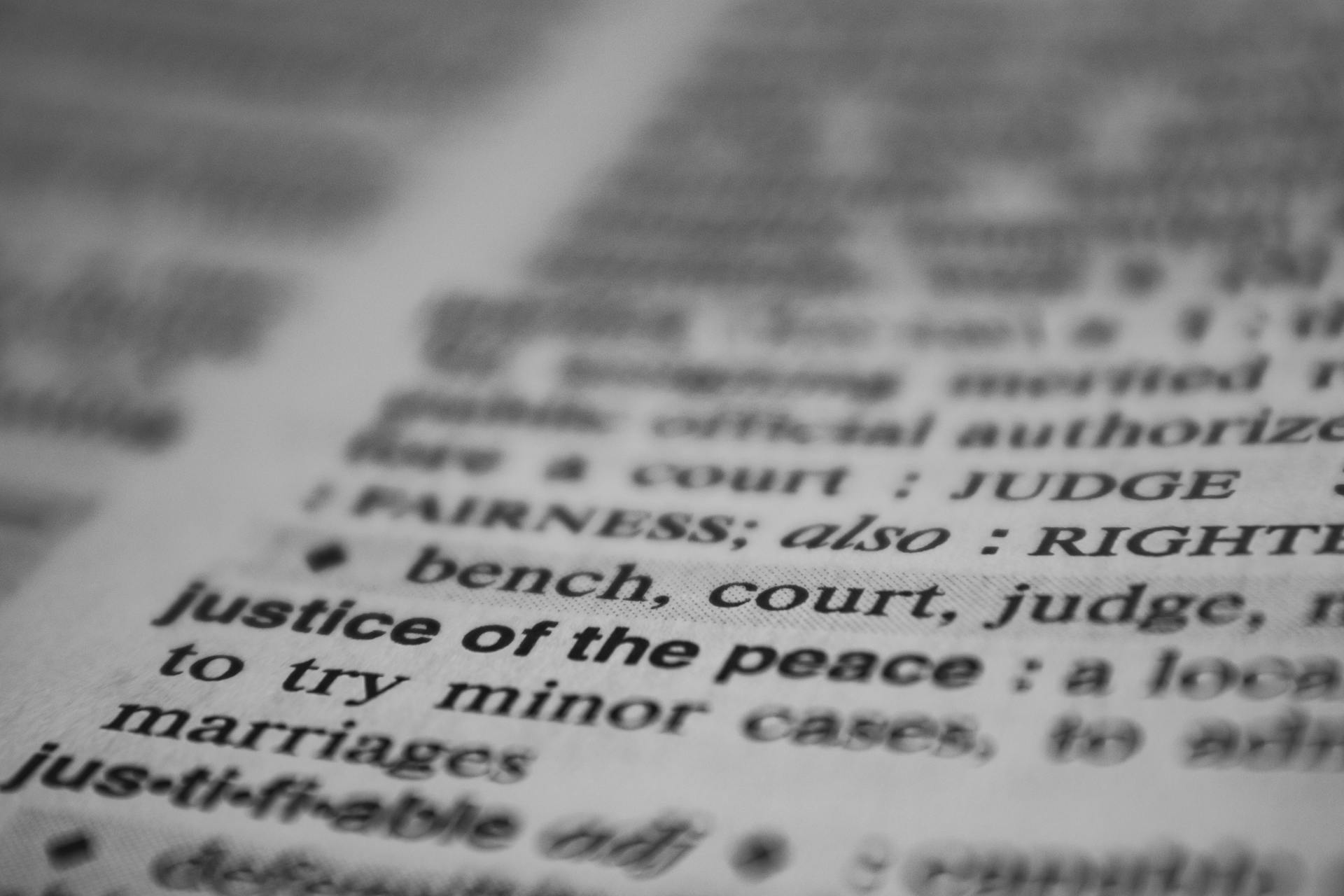
Foreclosure is a term that has been used frequently in recent years due to the housing crisis that hit many parts of the world. If you're seeking to buy or sell a home, it's important to understand what foreclosure is and how it can affect you. Simply put, foreclosure definition is the legal process by which a lender takes possession of a property when the borrower fails to make payments on their mortgage.
If you're dealing with financial difficulties and are struggling to keep up with your mortgage payments, understanding foreclosure is crucial. This ultimate guide will provide you with all the information you need to know about foreclosure - from what it means for you if your home is foreclosed on, to how you can avoid foreclosure altogether. By reading this article, you'll be better prepared for any potential issues that may arise in the future regarding your home ownership status.
Whether you're a first-time buyer or an experienced real estate investor, knowing about foreclosure definition is essential. You don't want to find yourself in a situation where your hard-earned investment ends up becoming a foreclosed home. So let's dive into the details of foreclosure and learn how to protect yourself from its potential consequences.
Understanding Foreclosure: The Ultimate Guide
Foreclosure is a term used to describe the legal process by which a lender typically repossesses or takes ownership of a property when the borrower fails to make payments on their mortgage loans. In real estate meaning, foreclosure happens when the borrower defaults on their mortgage payments, and the lender exercises its right to take possession of the property.
Foreclosure is not something that anyone wants to experience, but it can happen to anyone who fails to make payments on their mortgage loans. It's important to note that foreclosure can happen for many reasons, including job loss, financial difficulties, or unforeseen circumstances. So if you find yourself struggling with your mortgage payments, it's essential to reach out to your lender as soon as possible and explore all available options before it's too late.
1. See What You Qualify For
If you're facing foreclosure, it's important to know what options you have available to you. By filling out a quick form with your home description and credit profile, you can see what you qualify for as a first time homebuyer. Simply provide your contact information and agree to the privacy policy, which includes provisions to resolve claims related to the Telephone Consumer Protection Act. With Rocket Mortgage's easy-to-use sign-in page, your results will automatically pop up with just a tab click - congratulations based on your qualifications! Take control of the home loan process online today.
Discover How State Laws Affect Foreclosure Procedures
Governments govern foreclosures including the lengthy pre-foreclosure process and the final step of a lender seizing a homeowner's property. The foreclosure process is the legal process in which a lender can repossess a home, due to nonpayment of the mortgage loan. The two main types of foreclosure are judicial and nonjudicial foreclosure.
In a nonjudicial foreclosure, also called power of sale, the lender can sell the home without going through court proceedings. However, in a judicial foreclosure, the lender must go to court and receive approval before being able to seize the property.
State laws affect foreclosure procedures, and homeowners have options for avoiding foreclosure. Lenders must post publicly that a homeowner is in default on their loan current, giving homeowners time to avoid foreclosure by making arrangements with their lender or other financial institutions. Homeowners should be aware of foreclosures negative consequences and consider seeking legal advice if necessary, including suing their lenders for wrongful foreclosures.
Struggling with Foreclosure? Discover Where to Get Help

If you're facing foreclosure, you are likely feeling overwhelmed and unsure of where to turn. A judicial foreclosure note is a public court proceeding that can be incredibly intimidating, especially if you don't have an attorney assigned to your case. However, justice maintains that everyone has the right to a genuine defense, even in foreclosure cases.
Fortunately, there are low-cost legal service providers and organizations like the National Consumer Law Center that offer advice and assistance for those in your situation defending their homes. Don't give up hope - help is available. By seeking out resources and support, you can work towards a brighter financial future and protect your home from judicial foreclosures.
Understanding the Timeline of Foreclosure Process

The foreclosure process is a legal procedure that allows lenders to recover their investment when borrowers fail to make timely payments. According to the latest foreclosure market report by ATTOM Data Solutions, a leading property data provider, properties foreclosed in Q1 2021 took an average of 182 days to complete the process. This is a significant improvement from previous quarters' average of 261 days and longer than the current quarter's 173-day average.
Foreclosure timelines vary depending on differing laws in each state, so it's essential to understand your state's specific rules and regulations. Hawaii has the longest average number of days for properties foreclosed at 3068 days, followed by New York at 1822 days and Indiana at 1617 days. The shortest average times were Wyoming at 173 days, Arkansas at 253 days, and Tennessee at 270 days.
The quarterly average days it takes for properties to go through foreclosure also varies depending on the state. While some states have seen improvements in their foreclosure timelines, others have experienced increases. For example, Texas went from an average of 685 days in Q4 of last year to an average of 922 days this quarter. Understanding your state's foreclosure process can help you prepare for potential financial difficulties and take action before your property goes into foreclosure.
What Is The Foreclosure Moratorium?
The economic crisis caused by the Covid-19 pandemic has led to a widespread foreclosure crisis in the United States. In response, the government has put in place a foreclosure moratorium through various measures such as the Coronavirus Aid Relief and Economic Security (CARES) Act. This moratorium offers flexibility for homeowners who have missed payments on their mortgage.
Homeowners with mortgages backed by Fannie Mae or Freddie Mac can request initial forbearance of up to 180 days, which can be extended if needed. The deadline for requesting initial forbearance is September 30th, 2021. Additionally, the foreclosure moratorium has been extended until December 31st, 2021, allowing for more time for homeowners to pause mortgage payments and get back on their feet.
To check if you qualify for this housing relief program or to stay updated on any news related to the foreclosure moratorium, visit the Consumer Finance Protection Bureau website. This is an important resource for anyone who may be struggling financially due to the pandemic and needs assistance in keeping their home.
What's the Next Step When You Get a Default Notice?

If you receive a default notice, it's essential to contact your lender immediately. Ignoring the situation can lead to further complications and an expensive process of foreclosure. You should discuss repayment options with your lender and come up with a plan to avoid losing your home. Keep in mind that lenders' losses are minimized by working with homeowners to avoid foreclosure properties, so it's worth exploring all possible avenues to resolve the issue.
Ways to Prevent Foreclosure and Keep Your Home
If you're facing foreclosure, there are several ways to avoid losing your home. The first step is to contact your mortgage lender and explain your situation. They might be able to offer you alternatives, including a short refinance or reinstatement period where you pay back what you owe, including missed payments and interest, by a specific date.
Another way to help a borrower avoid foreclosure is through the Consumer Financial Protection Bureau (CFPB) or the Department of Housing and Urban Development (HUD). Both agencies provide resources for homeowners who are struggling to keep up with their mortgage payments. If you feel like you've been the victim of mortgage lending discrimination based on race, religion, national origin, disability, or public assistance status, these agencies have programs in place to help.
One alternative that many borrowers consider is a short refinance. This is when the lender agrees to reduce the outstanding balance on your loan amount so that you can afford to make monthly payments again. However, this option isn't available for everyone and depends on factors such as how much equity you have in your home and whether or not you've missed any payments.
Moving Forward: What Happens After Your Purchase?
After purchasing a foreclosed property, the next steps can vary depending on whether or not there are tenants still residing in the home. If there are tenants, the new owner must give them either a 30 or 60-day notice to vacate the premises. Once that time has passed, and if the tenant hasn't left, the new owner will need to file an official eviction notice with their local sheriff's department. After removing any remaining occupants, they can take possession of their new home immediately. For properties acquired through trustee auctions, buyers may need to do some repairs before moving in. In either case, it's important to find replacement housing if needed and move forward with your plans for your new property.
The aftermath of losing your home to foreclosure
The aftermath of losing your home to foreclosure can be devastating. Once your property fails to make mortgage payments, the lender will initiate a foreclosure process that ends with a foreclosure auction. Foreclosed properties are then typically easily accessible on bank websites, allowing real estate investors to purchase them at discounted prices. However, this turn negatively affects the borrower's credit report and appears as missed payment on their credit report.
In 2021, foreclosure activity dropped to a 16-year low according to Experian Understanding Foreclosure accessed Nov 19, 2021. Despite this trend, borrowers should be aware of how foreclosure can affect their credit report. To avoid going through the foreclosure definition process downside, there are several options available: (1) try to avoid foreclosure; (2) work out an agreement with the lender; (3) apply for a mortgage forbearance agreement; (4) consider a short refinance; and (5) review real estate FAQs to understand delinquent mortgage payments.
The six phases of foreclosure include default, notice of default, pre-foreclosure period, auction sale notice period, public auction sale or trustee sale and finally eviction according to Nolo Chart Judicial and Nonjudicial Foreclosures accessed Nov 19th, 2021. Borrowers have legal rights throughout these stages of foreclosure proceedings. If the property is successfully foreclosed upon by the lender at an auction, it becomes what's called Real Estate Owned REO. Successful foreclosure investing strategies include purchasing REO properties at auction or through essential tips for buying HUD homes in absolute auctions or bank-owned properties while avoiding financial loss. Other options include seeking a principal reduction or considering a voluntary foreclosure sale.
Frequently Asked Questions
What happens when you default on a foreclosure?
When you default on a foreclosure, the lender can take possession of your property and sell it to recoup their losses. This can have serious consequences for your credit score and financial future.
What is the foreclosure process?
The foreclosure process is a legal procedure in which a lender seeks to take possession of a property due to the homeowner's failure to make mortgage payments. This can result in the forced sale of the property, and can have serious long-term consequences for both the borrower and the lender.
What happens after a home is foreclosed on?
After a home is foreclosed on, the lender takes possession of the property and may sell it at an auction to recoup their losses. The former homeowner is typically evicted and may face financial consequences such as a damaged credit score.
What is a foreclosure and how can I avoid it?
A foreclosure is when a lender takes possession of your home due to unpaid mortgage payments. To avoid it, make sure to pay your mortgage on time and communicate with your lender if you are facing financial difficulties.
Featured Images: pexels.com


